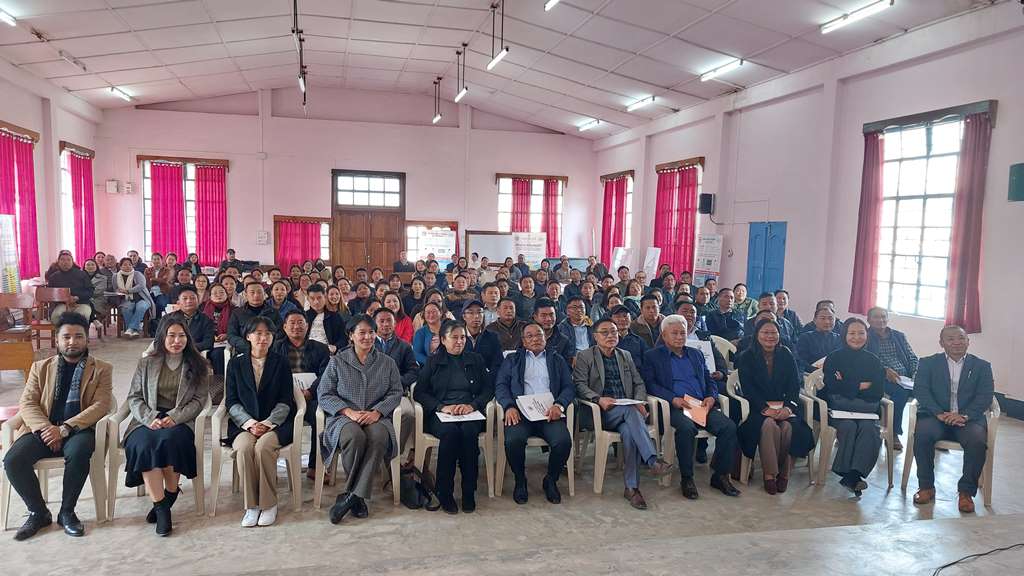FRIDAY, FEBRUARY 21, 2025
- Home
- Nagaland to introduce ECCE curriculum this year
Nagaland to introduce ECCE curriculum this year
Published on Feb 28, 2024
Share

KOHIMA — Nagaland will introduce the Early Childhood Care and Education (ECCE) curriculum in the schools starting from this academic year.
In preparation for the same, a five-day capacity-building programme for district master trainers on ECCE and Foundational Literacy and Numeracy (FLN) got underway at Mount Tabor Retreat Centre in Kohima on Tuesday. The in-house programme, organised by Samagra Shiksha and SCERT Nagaland, would culminate on March 2.
Speaking at the inaugural programme, the director of School Education, Wonthungo Tsopoe, urged the participants to make the best use of the training to build a robust future for the children. Lauding the efforts of SCERT and all those engaged in enabling to bring out a new curriculum through collaboration, Tsopoe exuded hope that the new curriculum would bring about a paradigm shift through the participation of the Social Welfare department.
He told the master trainers to have empathy as responsible citizens, while affirming that the paradigm shift was needed both in letter and spirit for the overall development of a child.
Observing the lack of proper parenting in government schools, he urged the trainers to learn thoroughly and not have any room for doubt when they complete the course.
The director also expressed concern about students not asking questions, irrespective of whether they are from government or private schools, and stressed on the need to address the issue right from their formative years so that the children have zeal for knowledge and curiosity. In this regard, he also expounded the role of the parents at home and teachers at school to bring about the required change.
Stating that Nagaland has huge human resources, he emphasised on the role of the teachers to build a strong foundation that would last for a lifetime.
Senior lecturer and head of ECCE Cell at SCERT Nagaland, Veketulu Veyie, in her keynote address, said that the programme was to learn more about foundational literacy. She acknowledged the role and impact of education on the Naga society and the contribution made by the early American missionaries, while also recognising the socio-cultural practices of learning at home even though not formal.
Veyie also mentioned about the shifts in educational curriculum and stressed the need for intensive collaborations of departments and educators for the new curriculum.
During the five-day training, the course would dwell on how to align the daily experience with learning and hands-on experience of the curriculum.
The programme was led by Kelhikha Kenye, deputy mission director of Samagra Shiksha Nagaland, who also informed that the same training would be replicated in the district and the block levels tentatively from March 11 to the 16th.
Nagaland Districts

